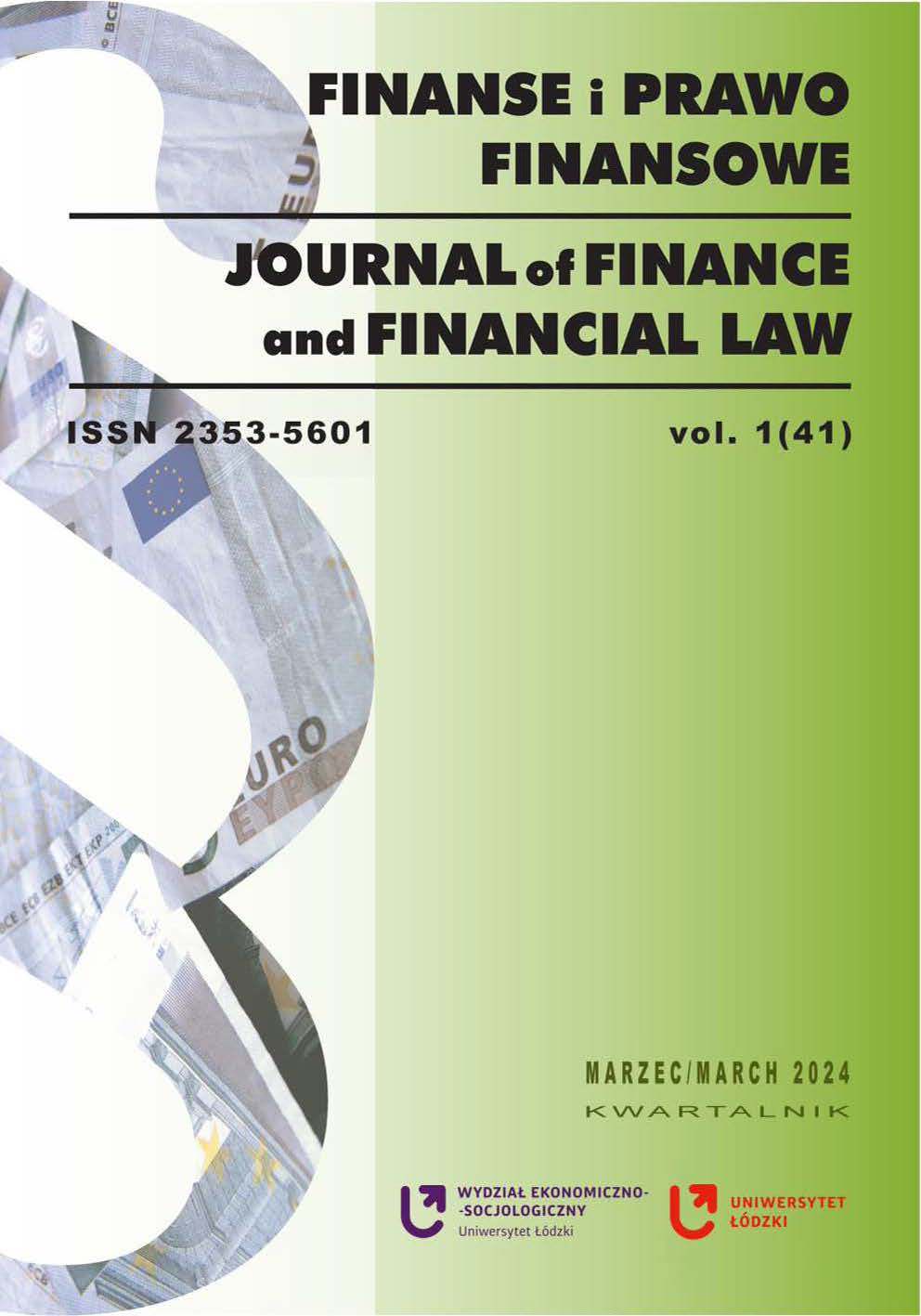Indirect Taxation: Assessing the Impact of the Sugar Tax in Poland
Indirect Taxation: Assessing the Impact of the Sugar Tax in Poland
Author(s): Rafał Rosiński, Julia MundzielSubject(s): Economy
Published by: Wydawnictwo Uniwersytetu Łódzkiego
Keywords: sugar tax; fiscal and non-fiscal function; indirect tax
Summary/Abstract: The purpose of the article. In 2019, Poland introduced a sugar tax that encompassed food products, including beverages. Since the sugar tax is a form of indirect taxation, consumers bear its burden in the price of the purchased product. In response, businesses often adjust prices or reduce product quantities to offset their costs. This article aims to characterize the fiscal and non-fiscal significance of the sugar tax and to illustrate its impact on the financial situation of a selected soft drink industry enterprise. Methodology. The applied research methods include a literature review analysis, analysis of legal acts and financial data analysis. Results of the research. The impact of the sugar tax on a company can be diverse and dependent on various factors. Its fiscal and non-fiscal nature means that, on the one hand, the goal is to reduce the consumption of "harmful products" to improve public health by reducing sugar intake and addressing health problems related to excessive consumption of sugary beverages. On the other hand, it aims to generate additional revenue for the state budget. It also has implications for the financial situation of the company.The results of the analysis indicate that the sugar tax, due to its pass-through nature, remains neutral for businesses, without adversely affecting revenue, profitability or financial liquidity.
Journal: Finanse i Prawo Finansowe
- Issue Year: 1/2024
- Issue No: 41
- Page Range: 83-95
- Page Count: 13
- Language: English

